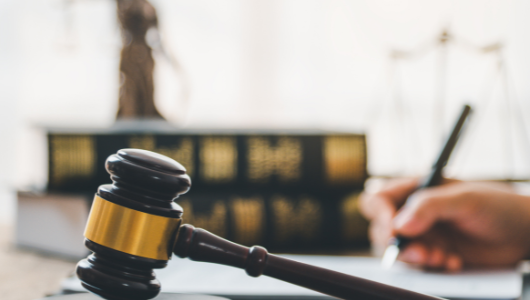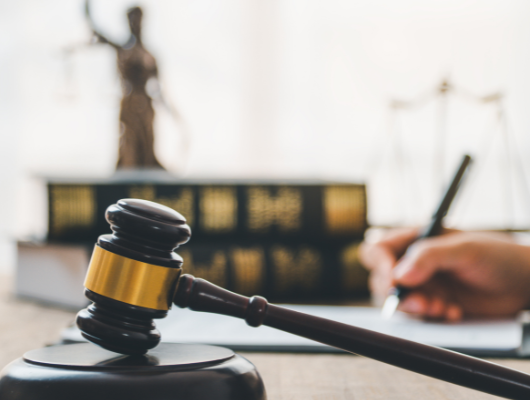Have you been charged with Unauthorised Possession of Poison or a Controlled Substance?
- Over 30 years experience in the criminal justice system
- Track record of success
- Nationally acclaimed expertise
Free Legal Advice 24/7
-
Ice Epidemic in Victoria
-
Unauthorised Possession of Poison or a Controlled Substance
-
Manufacturing Heroin
-
Trafficking a Drug of Dependence in a Large Commercial Quantity
-
Possession of a Substance, Material, Documents or Equipment for Trafficking in a Drug of Dependence
-
Trafficking a Drug/s of Dependence in a Commercial Quantity
-
Trafficking a drug/s of Dependence to a Child
-
Trafficking a Drug/s of Dependence
-
Supplying a Drug/s of Dependence to a Child
-
Possession of Tablet Press
-
Possession of Chemical Precursor Chemicals
-
Cultivation of Narcotic Plants of a Commercial or Large Commercial Quantity
-
Cultivation of Narcotic Plants
-
Drug of Dependence into the Body of Another Person
-
Obtaining Drugs of Dependence by False Representation
-
With Use or Possession of a Drug of Dependence
What does it mean to be charged with Unauthorised Possession of Poison or a Controlled Substance?
Being charged with Unauthorised Possession of Poison or a Controlled Substance under Section 36B of the Drugs, Poisons and Controlled Substances Act 1981 (“DPCSA”) means you are accused of unlawfully possessing a controlled or regulated substance, such as a poison, without legal authorisation.
This could apply to substances classified as Schedule 8, Schedule 9, or Schedule 4 poisons, which include certain prescription medications and dangerous chemicals. Possession of these substances requires proper authorisation, such as a medical prescription or a specific licence. Being charged under this section indicates that you are believed to have acquired or held these substances unlawfully, either through false representation or without proper documentation.
Key Points of Section 36B:
1. False Representation (S 36B(1)):
- It is an offence to knowingly and falsely obtain or cause another to obtain a Schedule 8, 9, or 4 poison. This could involve falsely representing yourself to acquire such substances from a licensed professional, such as a pharmacist or doctor.
- This may involve using false documents, misleading conduct, or lying to obtain a prescription or the drug itself.
- Penalty: 10 penalty units (fines).
2.Unauthorised Possession (S 36B(2)):
- It is also an offence to be in possession of these controlled substances without being legally authorised (e.g., holding a valid prescription).
- The law specifically targets those who possess these substances without the legal right or documentation to do so.
- Penalty: 10 penalty units.
3.Exclusion of Drugs of Dependence (S 36B(3)):
- It’s important to note that this section does not cover drugs of dependence (such as heroin or methamphetamine), which are regulated under different sections of the DPCSA.
What must the prosecution prove?
- You knowingly and fraudulently acquired, or caused someone else to acquire on your behalf, an unauthorised prescription.
- You made a false representation—whether in writing, verbally, or through conduct—in order to obtain or induce someone to issue an authorised prescription.
- You were found in possession of a Schedule 8, 9, or 4 poison without proper authorisation.
Penalties for Unauthorised possession of Poison or Controlled Substance:
The penalty for unauthorised possession is 10 penalty units, which equates to a fine issued by the Court.
Factors and Defences to consider:

Did you have any legitimate authorisation, such as a valid prescription or license, to possess the substance in question?
- Evaluate whether you knowingly possessed the substance and if you intended to use it unlawfully.
- Was anyone else involved in the possession?
- What were the surrounding circumstances?
- What was the chain of custody of the substance?
- How did it come into your possession?

Where will my case be heard?
Unauthorised Possession of Poison or a Controlled Substance is classified as a summary offence and will be heard in the Magistrates’ Court.
-
Ice Epidemic in Victoria
-
Unauthorised Possession of Poison or a Controlled Substance
-
Manufacturing Heroin
-
Trafficking a Drug of Dependence in a Large Commercial Quantity
-
Possession of a Substance, Material, Documents or Equipment for Trafficking in a Drug of Dependence
-
Trafficking a Drug/s of Dependence in a Commercial Quantity
-
Trafficking a drug/s of Dependence to a Child
-
Trafficking a Drug/s of Dependence
-
Supplying a Drug/s of Dependence to a Child
-
Possession of Tablet Press
-
Possession of Chemical Precursor Chemicals
-
Cultivation of Narcotic Plants of a Commercial or Large Commercial Quantity
-
Cultivation of Narcotic Plants
-
Drug of Dependence into the Body of Another Person
-
Obtaining Drugs of Dependence by False Representation
-
With Use or Possession of a Drug of Dependence
Testimonials
What people Say
St Kilda, Victoria 3182
1800 130 120
-
Michael Sunderland from MK Law handled my matter with professionalism, respect, and genuine care. It was clear that he genuinely cared about gett... Read MoreMichael Sunderland from MK Law handled my matter with professionalism, respect, and genuine care. It was clear that he genuinely cared about getting the best result possible, and his preparation and courtroom presence reflected that commitment. Michael’s professional demeanour and respectful conduct, both with me and within the court, gave me the utmost confidence I was in the right hands. He clearly explained the process, kept me informed, and made me feel confident throughout. The outcome was far better than I expected, thanks to his expertise and strategic approach. I’m truly grateful for his support and wouldn’t hesitate to recommend him. Read Less55/5
-
I cannot thank Michael Sunderland from MK Law enough for the way he handled my case. From the very beginning, Michael was highly professional, kno... Read MoreI cannot thank Michael Sunderland from MK Law enough for the way he handled my case. From the very beginning, Michael was highly professional, knowledgeable, and thorough in every aspect of the process. He took the time to explain everything clearly, which gave me great comfort and confidence throughout what could have been a very stressful time. Michael’s expertise and guidance reassured me that I was in the best hands, and his calm and confident approach made a huge difference to my peace of mind. He was always approachable, responsive, and dedicated to achieving the best possible outcome for me. I would highly recommend Michael Sunderland to anyone seeking a lawyer who is not only exceptionally skilled but also genuinely cares about his clients. Read Less55/5
-
I would like to sincerely thank Ashleigh for her exceptional support and professionalism during a very difficult time in my life. From the first m... Read MoreI would like to sincerely thank Ashleigh for her exceptional support and professionalism during a very difficult time in my life. From the first meeting, she was calm, respectful, and clear about what I could expect. She never judged me, always listened carefully, and explained every step of the legal process in a way that made me feel supported and confident. Ashleigh handled my case involving a traffic offence with care and honesty. She gave me solid advice, helped me prepare all the right documents, and even guided me on how to speak respectfully in court. Because of her help, I was able to present myself properly before the judge and achieve a much better outcome than I expected. What really stood out to me was her genuine concern for my future. She didn’t treat me like “just another case.” Ashleigh is not only a skilled lawyer — she is also a kind person who truly cares about her clients. I highly recommend Ashleigh to anyone in need of legal help. She is trustworthy, professional, and goes above and beyond for her clients. Thank you again for everything. Read Less55/5
-
I would like to highly recommend Michael Sunderland. Michael took on my matter from another lawyer that was not able to represent me at the time. ... Read MoreI would like to highly recommend Michael Sunderland. Michael took on my matter from another lawyer that was not able to represent me at the time. Michael was well prepared, taking onboard all the information, with communication all the way. He clearly explains all the outcomes and was by my side every step of the way. A genuine caring lawyer that has your best interest. Read Less55/5
What happens next?
After being charged with Unauthorised Possession of Poison or a Controlled Substance, the first step is to seek legal advice from a qualified solicitor, such as those at MK Law, who can guide you through the legal process. Your lawyer will review the details of your case, discuss the evidence against you, and outline your options for defence.
Depending on the circumstances, your case may be resolved through negotiation or plea bargaining with the prosecution, or it may proceed to a hearing in the Magistrates’ Court. If your case goes to court, your lawyer will prepare your defence strategy, which may involve challenging the evidence, negotiating for lesser charges, or presenting mitigating factors that could influence sentencing. Throughout this process, it is crucial to stay informed and cooperate with your legal representation to achieve the best possible outcome. Ring 1800 130 120 today to receive confidential and expert advice.
Free Legal Advice 24/7
Contact Us
Call Anytime For Free Legal Advice 24/7
Top 5 firms by reputation dealing with traffic and criminal law matters.
- 2/212 Barkly Street, St Kilda Victoria, 3182 Australia
- 1800 130 120
- marcus@mklawfirm.com.au